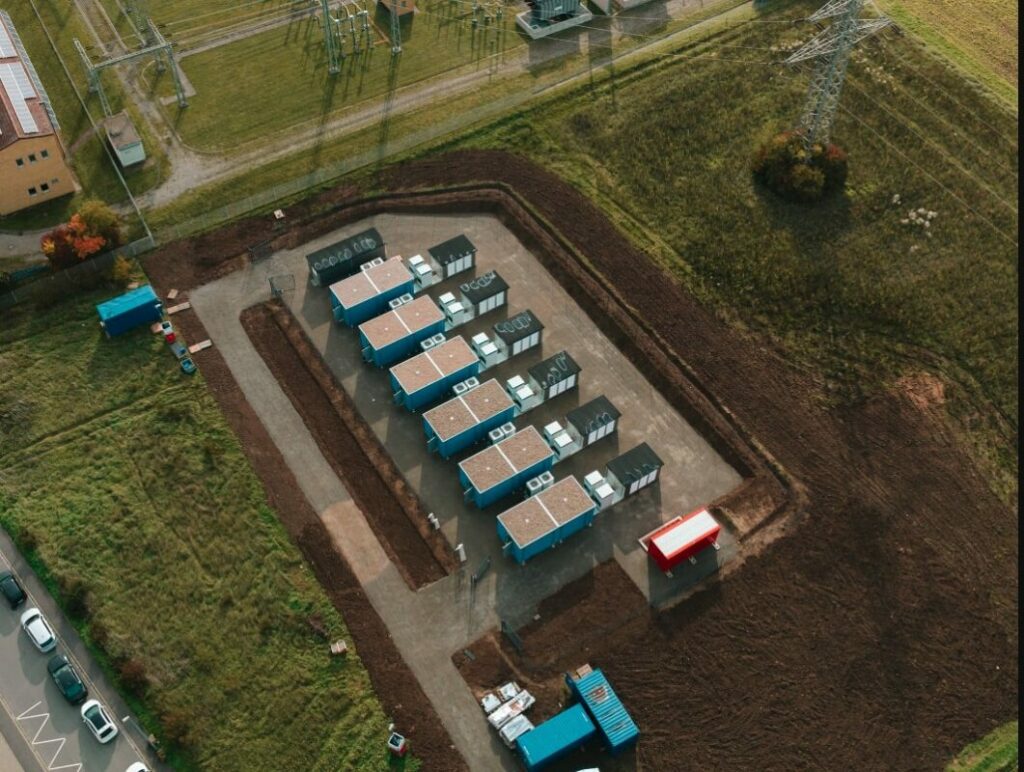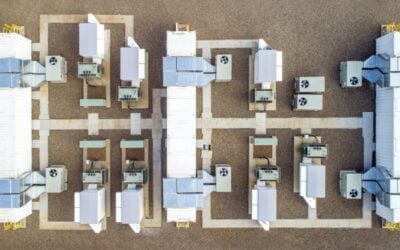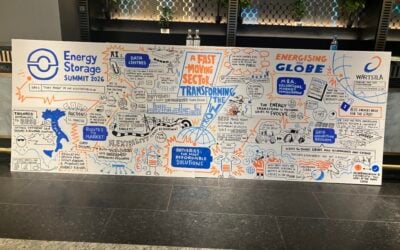
Significant partnerships in Germany have been struck on second life energy storage and large-scale deployments, by ABO Wind and Tricera, and Kyon Energy and Obton, respectively.
Renewable energy firm ABO Wind and project system integrator Tricera will together build three battery energy storage systems (BESS) totalling 25MWh using repurposed modules from the automotive sector. The projects will be commissioned this year.
They will be co-located with solar PV projects with a combined capacity of 20.4MWp in Weichenried (in the state of Bavaria), Euskirchen Wüschheim (North Rhine-Westphalia) and Wald-Michelbach (Hesse). All three have secured contracts under Germany’s innovation tenders, which pay a premium per kWh of energy from the energy storage for being hybridised with renewables.
The announcement came one week after ABO Wind commissioned another innovation tender project, this time a 2.9MW/5.8MWh BESS supplied by Rolls Royce co-located with a wind farm in Bavaria.
Try Premium for just $1
- Full premium access for the first month at only $1
- Converts to an annual rate after 30 days unless cancelled
- Cancel anytime during the trial period
Premium Benefits
- Expert industry analysis and interviews
- Digital access to PV Tech Power journal
- Exclusive event discounts
Or get the full Premium subscription right away
Or continue reading this article for free
The press release announcing the second life projects did not reveal which OEM or car maker the modules come from, but Tricera COO Lars Fallant last year explained to Energy-Storage.news how the company gets its modules. They come from a range of automotive sectors but also one of its shareholders, which manufactures electric forklifts, and so has its own battery platform.
Kyon Energy and Obton announce 600MW pipeline partnership
In related German market news, developers Kyon Energy and Obton have announced a 600MW pipeline of BESS projects in Germany for the next three years.
Kyon Energy will focus on the early stage development, including project planning, site development, grid connection planning, building lease development and layout design while the two will jointly handle business model development and general contracting through to turnkey commissioning. Obton will then finance the projects and operate them once completed.
The first project in the co-operation framework has reached ready-to-build status, a 15.8MW/32MWh system in Tangermünde, Saxony-Anhalt.
The pair have previously enlisted system integrator Eco Stor for projects totalling 32.4MWh commissioned last year though did not reveal the technology providers that will deliver the 600MW pipeline of projects.
Osborne Clarke provided legal advisory services for Obton, which is headquartered in Denmark, for the negotiation of the framework agreement.
Kyon Energy’s head of business development and regulatory affairs Benedikt Deuchert discussed the German market in an interview with Energy-Storage.news last year.





